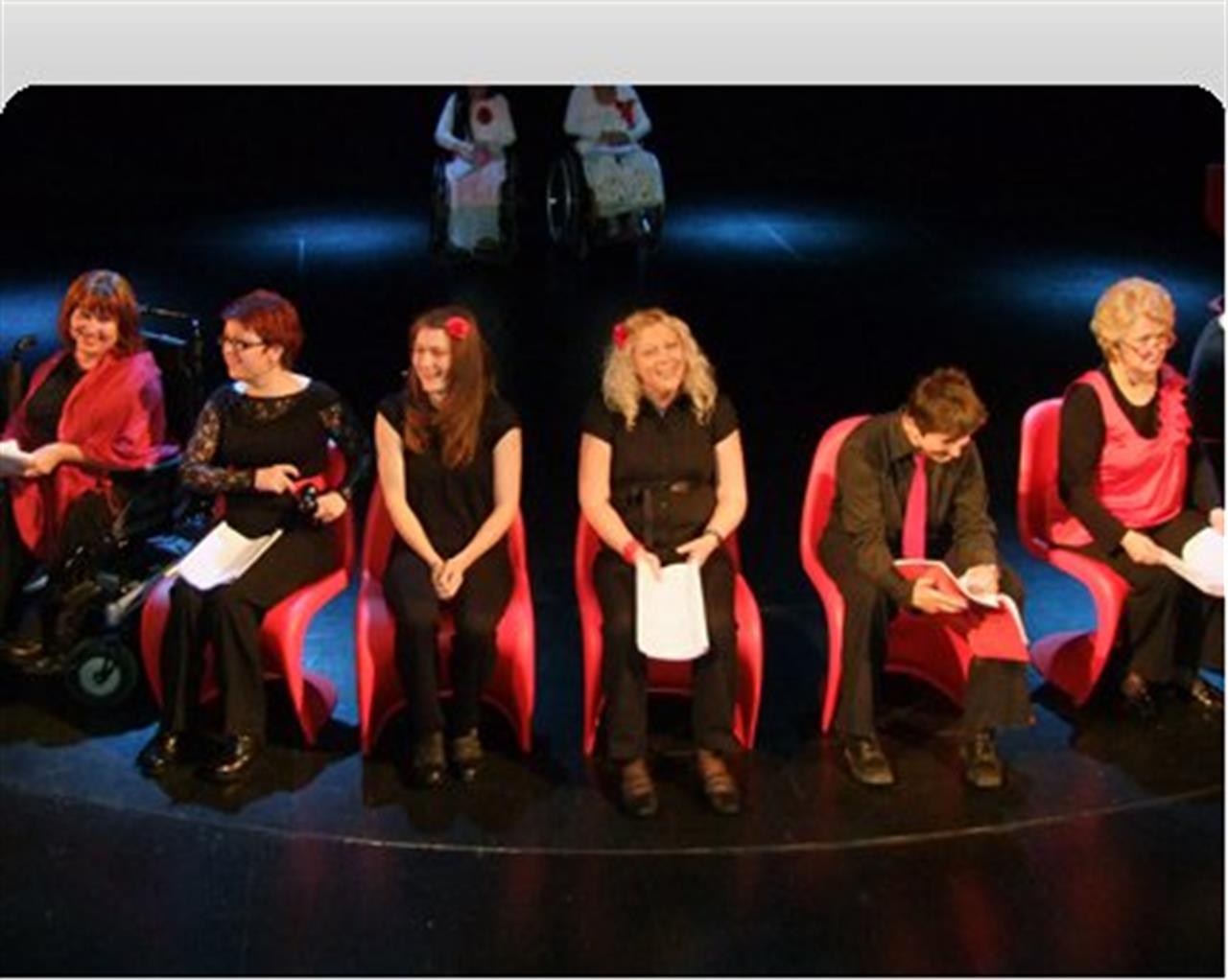Famiglia
Turning the pain into power
Meet Rada Boric, V-Day Campaign coordinator for Eastern Europe

“People think that vaginas are more dangerous than the atomic bomb”says Rada Boric and she knows full well that they are right. For more than ten years she has been one of the thousands of women volunteers to produce benefit performances of Eve Ensler’s The vagina monologues, through V-Day campaigns, in order to raise awareness and funds to finance projects that fight violence towards women. If Boric is aware that the” v-word” still has the power to make people blush, she also knows how important it is to reclaim it. During the war in the Balkans she was among the creators of the Center for Women War Victims in Croatia and she is now board member of the women’s rights organization European Women’s Lobby and executive director at the Center for Women’s Studies in Zagreb. In 2008 she co-produced V-Day Zagreb-Belgrade-Sarajevo, Vagina Triangle. For the occasion a group of actresses travelled on a small van to perform the show in the three cities that had been mostly hit by the conflict, in only three days. We meet Boric to talk about her life as an activist and the success of the V-Day event she organized in Zagreb last April, which for the first time brought women with disabilities on stage .
How did you become involved in the V-Day organization?
It all started with my friendship with Eve Ensler. In 1993, during the war in former Yugoslavia I was working as a program coordinator at the Center for Women War Victims. I worked with refugee women and women who had been raped during the war, regardless of their ethnicity. One day we received a fax from Eve Ensler, she had read about what was happening in the Balkans in The New York Times and she wanted to support us. She came to the center and she took part in the self support workshops I’d been running at the refugee camp. She talked with many women who had been raped and she wrote a monologue, My vagina was my village, about the story of a woman I worked with, that was later included in the play The vagina monologues. Many of the monologues were written here. We became friends and I started organizing performances of the play not only in the Balkans, but also in Bulgaria and in Finland.
How did you get the idea for this year’s V-Day?
I wanted to emphasize the fact that women with disabilities feel desire too, that they are like everybody else, except they have a disability. I was in Sarajevo at a conference and saw this picture of Marylyn Monroe in a wheelchair, which later became the poster of this year’s V-Day event in Zagreb. That was my vision. I organized a meeting with the president of the Association of People with Disabilities. We gathered together many members of the association, both men and women. I told them about the V-Day and asked if anybody was interested in participating and I was amazed by the number of women who decided to take part in it.
What was so special about this V-Day?
What I loved about it was not only the fact that the actresses took it very professionally, but also that in between the monologues they also shared their own personal stories. The whole performance had a double impact. It empowered them and I think it was great for the public.
During the war in former Yugoslavia, 20 thousand women were raped as a systematic tactic of war. The monologue My vagina was my village is about this. What does it mean to perform a V-Day in the Balkans?
My vagina was my village makes people cry everywhere it is performed, and of course it is the same here in the Balkans. The first time we did a V-Day in Sarajevo or in Zagreb I thought there would be some kind or resistance to the word itself but after the first moments, when women hesitated, they all started to laugh and cry. The best feedback I had was when we did the Triangle tour and I invited the bus driver to see the show. Later that night he told me: “Mrs. Boric I have to thank you very much. The whole performance I was sitting there and thinking how little I knew about my wife.” Every year we do it we have more and more men in the audience, they’re getting more sensitive about women’s issues. When Eve performed the play in Sarajevo the mayor received us and Eve wanted me to translate that she was happy to be in a Vagina friendly town. I hesitated, because I wasn’t sure if using the word vagina would have been appropriate but then I said it and the mayor was flattered. I think that V-Day has had a great impact in the Balkans and I believe that the Bosnian piece helped, also because there’s an introduction that tells about how many women were raped during the war and it is dedicated to them and to our land.
What do you value the most about the V-Day experience?
The V-Day allows us to see the results when you deal with women’s issues on an artistic level . Art really touches our hearts and souls and it’s one of the best ways you can improve activism. V-Day creates a great synergy between politics and art and this is the best experience for me.
Get active: www.vday.org
Si può usare la Carta docente per abbonarsi a VITA?
Certo che sì! Basta emettere un buono sulla piattaforma del ministero del valore dell’abbonamento che si intende acquistare (1 anno carta + digital a 80€ o 1 anno digital a 60€) e inviarci il codice del buono a abbonamenti@vita.it
